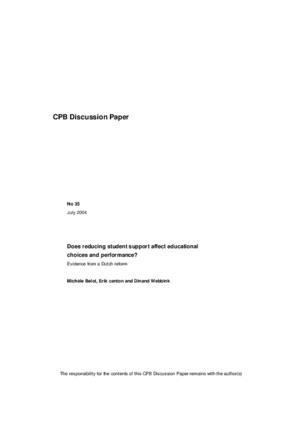Does reducing student support affect educational choices and performance? Evidence from a Dutch reform
Ruimte voor verhoging van private bijdragen aan hoger onderwijs
We are sorry, unfortunately there is no English translation of this page.
This paper investigates the impact of student support on educational choice (university versus non-university) and student performance in higher education, using data from the Netherlands.
Over the years, the generosity of this support system has been substantially reduced. This paper considers the 1996-reform, which reduced the duration of public support by one year and limited it to the nominal duration of the study program. We investigate the effects of the reform, using micro data on freshmen from two cohorts: one before the change (1995) and one after the change (1997).
We find that the reform drove 2.2% of the students from university to higher vocational education. We also find that performance improved after the reform. The probability of dropping out after 5 months fell by 2%, and university students completed 5% more courses. In addition, students spent relatively more time working on the side (3.7 hours per week on average) and less time studying (1.8 hours per week on average). This means that students probably became more efficient.
